(January 31, 2024) Ever wondered how important the work of an architect is to a burglar? The fire escapes and storm water drains, the vaults, staircases and parking lots designed for safety and functionality are the very conduits artful burglars exploit. Or, maybe, how design can play a role in rehabilitating prisoners – as forensic psychologist Pia Puolakka is attempting to do at Finland’s smart prison. Do we even stop to think about where our food comes from? Where is it grown, where are seeds stored? These are the sorts of questions that architect Vaissnavi Shukl, the founder and host of architecture off-centre, examines in her podcast, as she engages with artists, journalists, policymakers and educators who normally aren’t thought about in context of architecture, but who, in reality, shape our built environments. In 2023, Vaissnavi, who is a graduate from CEPT, Ahmedabad, and Harvard Graduate School of Design, received the prestigious Graham Foundation Grant – one year’s worth of funding for her podcast.
Meeting challenges through innovation
Her story began in a moment of crisis. Vaissnavi Shukl had just graduated with a master’s from Harvard University and believed, understandably, that she was totally sorted. With a flawless academic record and top-tier work experience, all she had to do was sit back and wait for the offers to come pouring in – right? There was only one problem – this was 2020 and the pandemic had brought a worldwide lockdown into place. The same architecture firms she had hoped to be in were now conducting layoffs, imposing paycuts, implementing a suite of cost-cutting measures as the construction industry ground to a halt. “Funding was retracted from larger firms doing federal projects and diverted to healthcare workers, hospitals and unemployment benefits,” Vaissnavi recalls, in an interview with Global Indian. “It was very humbling to realise that all the things you have been talking about and doing are not that important at the end of the day.”
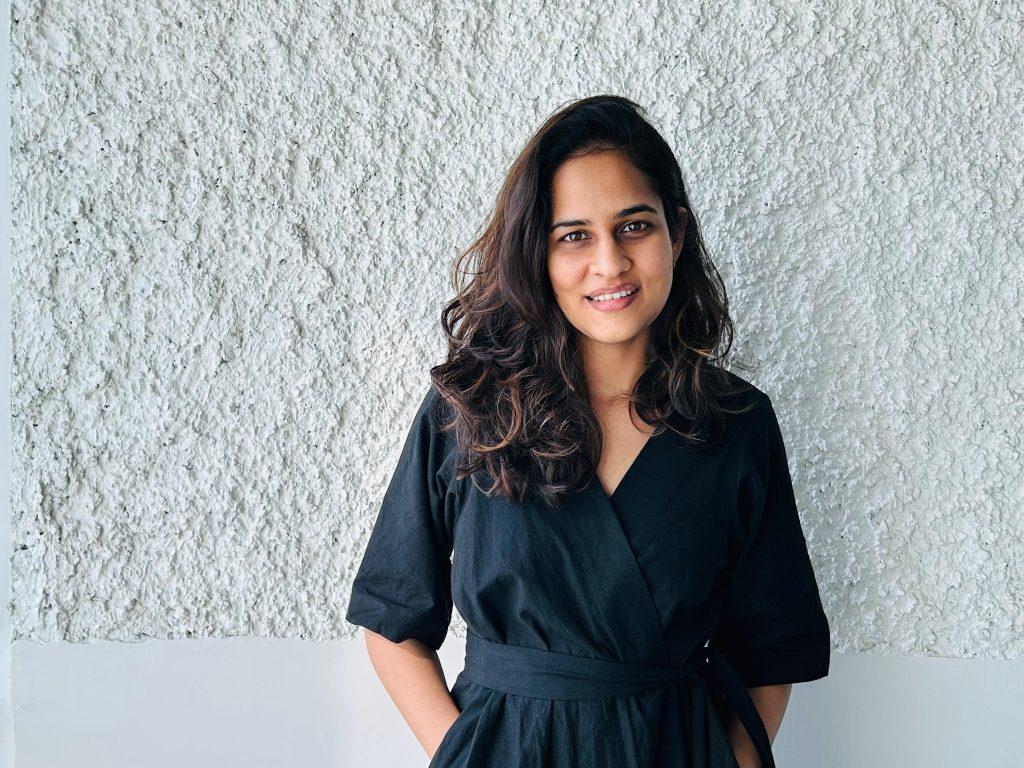
Vaissnavi Shukl
Even her Ivy League degree didn’t give her an out. “We put so much energy and resources into funding an education but when I finished my master’s in 2020, after a decade of work, I couldn’t get a job. What was I doing? Was I worth anything?” At the time, Harvard advised its students and alumni to use the lockdown to build a portfolio and create a network. “All of that sounds good but technically, I could not live in the US without a job. And I couldn’t practice on my own either because the road to licensure is so long,” Vaissnavi says. She wondered what other architecture students were doing, apart from designing buildings, that is.
Architecture – by chance, not design
Vaissnavi had stumbled into architecture herself – while she had always loved design, she saw herself designing clothes, not buildings. “I went through a process of elimination,” she laughs. “All I knew was I didn’t want to study chemistry!” She chose commerce after 10th grade, which included Statistics as a subject. And that year, the Council of Architecture decided to allow students from Commerce backgrounds if they had studied statistics. At the time, Vaissnavi was busy giving exams to NID and NIFT, and also gave NATA. “NIFT and CEPT counselling were on the same day. I wasn’t sure if I would get into NIFT but CEPT was a sure shot, so I went there,” she says. Back then, she didn’t even realise how big a deal this was – she just knew she would make it. She ended up being the first person with a commerce background to get into CEPT, one of the top architecture schools in the country. “They actually stopped this provision a few years later, there was a short window in which Commerce students could get in and I made it through.”
At CEPT, Vaissnavi learned the ins and outs of the actual practice, making models and working with materials. She also interned in Palinda Kannangara, one of Sri Lanka’s best known architecture firms, where she learned tropical modernism, the imprint of which her work today continues to carry. What she loved most, though, where the history courses, which were also what she used for her thesis. “I wanted to get more into the theoretical side of things,” she says. Two years after graduating from CEPT, she went to Harvard to study a master’s in design studies, with a concentration in history and philosophy of design. “For two years, I was just reading and writing,” Vaissnavi recalls.
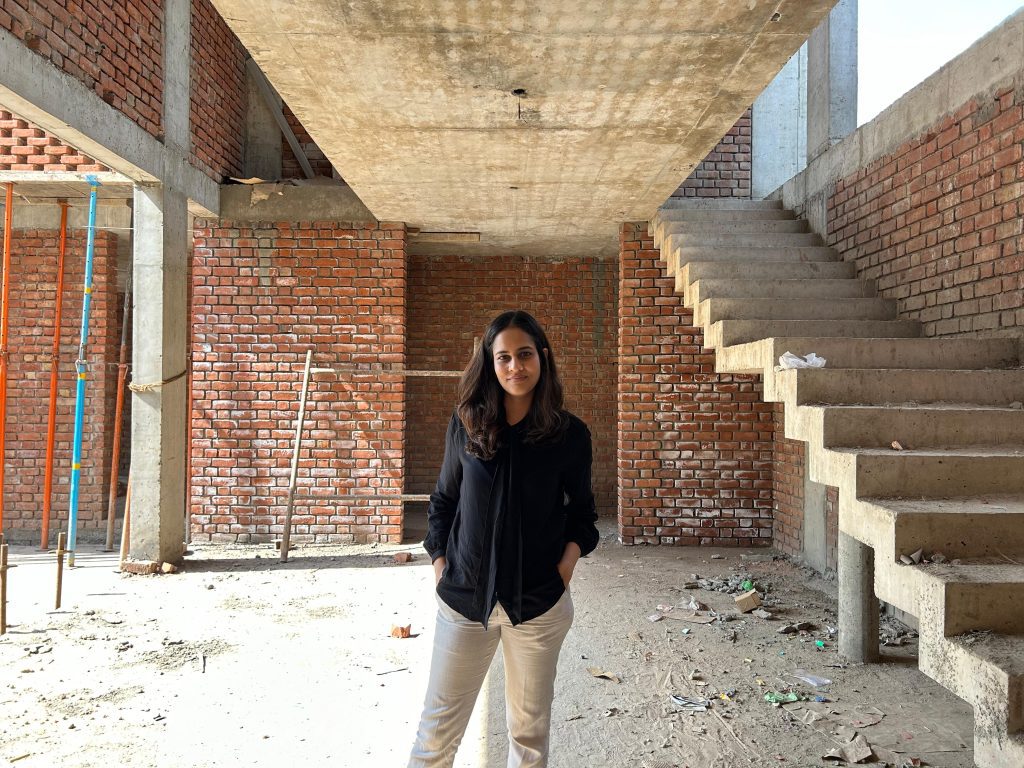
Harvard and the pandemic
She took courses at the Kennedy School of Governance and the South Asian Studies department. “By history, I also mean things that happened a decade ago,” she explains. “I wanted to learn about the really large infrastructure projects, or how Le Corbusier built Chandigarh, and the history of concrete in India. My one beef with architecture education in India is you’re just thinking of buildings, when you can’t really think of architecture in isolation. There are so many factors at play influencing our built environments.” It was an approach that would serve her well with her podcast.
When the pandemic hit, Vaissnavi Shukl was left contemplating the relevance of architecture itself, and considering pivoting into another line. She began by calling other Harvard alumni and people she knew to see how they were using their skills as architects. What she learned was a revelation. One of her juniors at Harvard had got into a tech startup in the construction industry. Another friend had worked with UN-Habitat to build schools and police stations in Afghanistan before the Taliban takeover. Someone else had done a project on satellites and human waste in outer space. “People were in practice but unconventionally,” she remarks. “I wanted to know how they were using their skills as architects to do these things.”
Architecture off-centre
She continued to have the conversations and one day, she thought, “I’m not sure if I am going to do any of these things but their work is fabulous and more people should know about it.” She was having these discussions anyway, so why not record them and launch a podcast? “There were so many people struggling to find work, maybe this would tell them how to use their skills. And what about people who are not architects but who contribute to how we live? I spoke to a midwife who told me how midwifery centres in Mexico are built.” Vaissnavi was big on podcasts her self and with so much time on her hands, creating one of her own seemed the obvious thing to do. She learned Audacity (an editing software) with help from her now-husband and got things started. “I was back in India by the time I released my first episode,” she says.
People were happy to participate – she tapped contacts across the board, including a friend in the music industry, and a set designer in Hollywood. “They were all people I knew, there was lots of nepotism in Season 1,” Vaissnavi jokes. Architecture off Centre was an instant hit though and in the second season, she hired a research assistant to help bring in meaningful, structured content. “We were not going to speak to famous architects because we hear from them a lot and it’s the same discourse over and over,” she emphasises. “So I thought, what if we go with a keyword and take deep dives from different perspectives.”
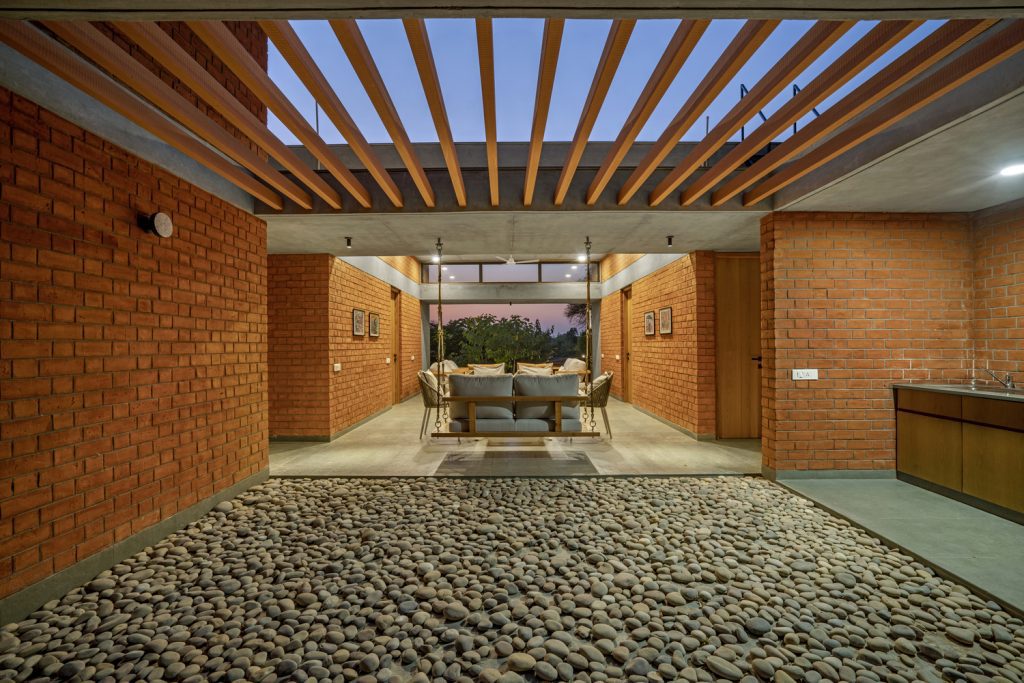
Cool Shed, designed by Vaissnavi Shukl. Photo: Inclined Studio / ArchDaily
For instance, in Season 3, she took off from the book she was reading at the time, Michael Foucault’s Discipline and Punish “So we examine the ideas of crime, violence and justice in our cities and our buildings,” Vaissnavi explains. In Season 4, she deals with ‘Agriculture, Food and Waste’, which includes a candid conversation with activist Dr Vandana Shiva, and Ateya Khorakiwalas on India’s grain silos.
The big picture
“It’s so important to reinforce and acknowledge the fact that we exist within a larger ecosystem,” Vaissnavi says. “I’m not trying to preach or anything, it’s just about knowing that there is a much bigger picture. And a lot of it comes from FOMO, from not being able to do or address these things in my own practice!”
Vaissnavi Shukl, who is based in Ahmedabad, established her own eponymous practice in 2020, which she currently runs with an all-women team. “Our projects are quite conventional,” she says, with a laugh. “The good thing about working in Ahmedabad is that clients here have very mature tastes, which is a boon for a young architect!”
Also Read: Meet Bulu Imam, the archaeologist who is protecting tribal art
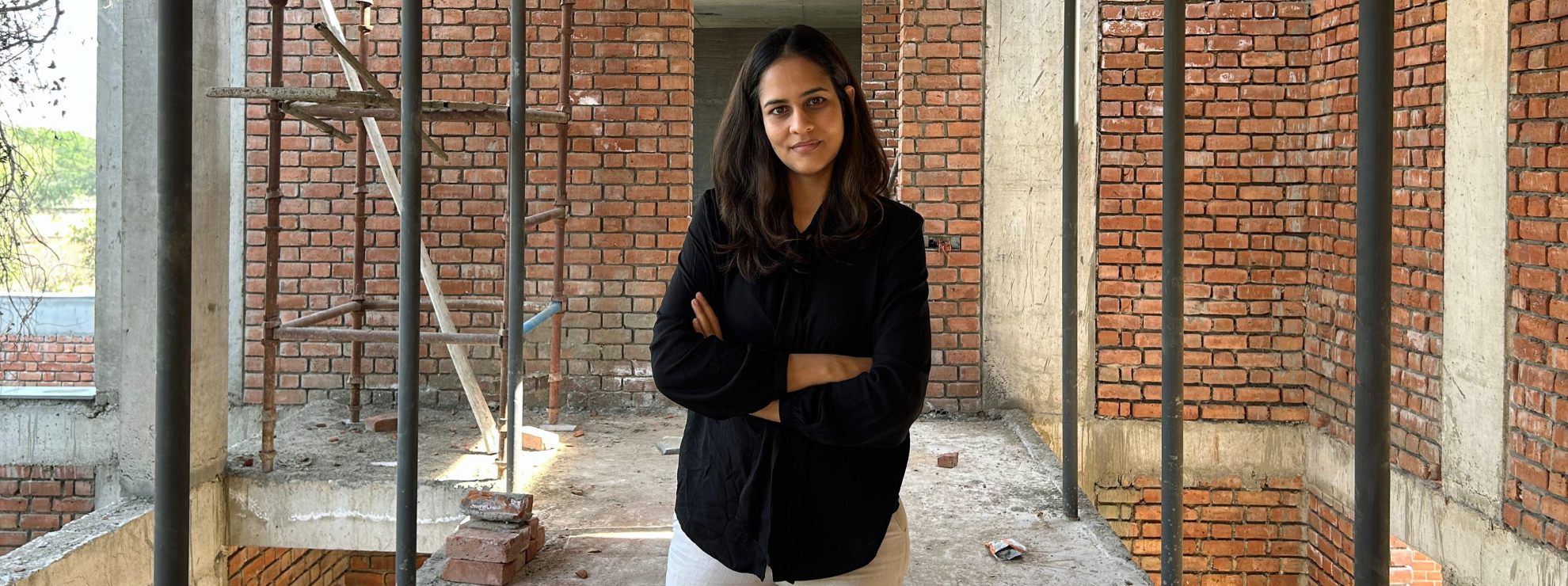


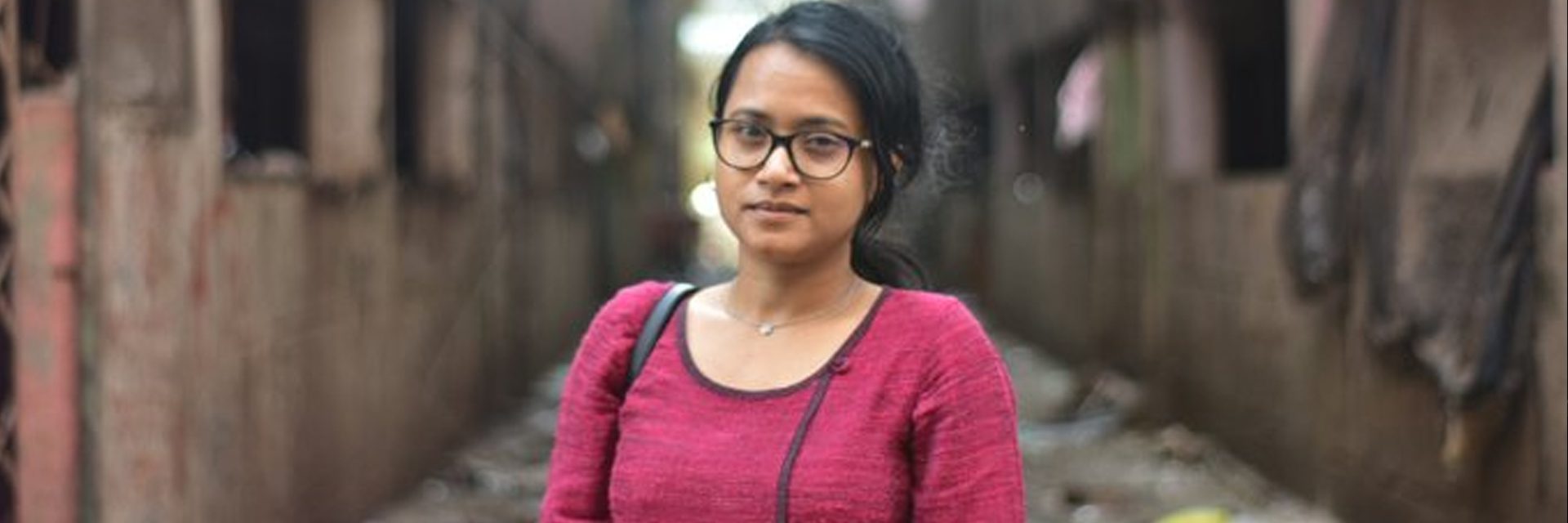
Heartiest Congratulations !!!!🎊
All best wishes for many more to come 👍
Vaissnavi has made her architecture a head, heart, hand and feet project. Thinking and applying knowledge in out-of-set-boundaries is what India needs. The construction boom is destroying our landscape. Construction design which creates, conserves, combines and regenerates in various areas is what Vaissnavi is doing.
Bravo young lady! And all the best!